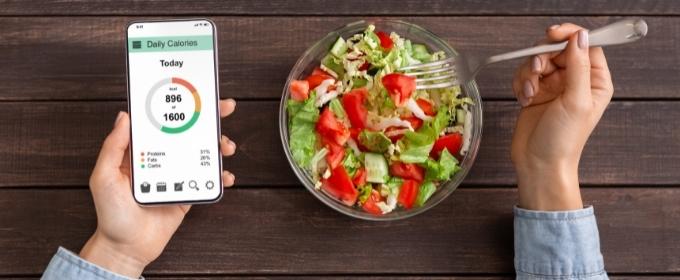A caloric deficit is any shortage in the number of calories consumed relative to the number of calories required for maintenance of current body weight (energy homeostasis).
- A deficit can be created by reducing input/calories consumed (lower food intake, dieting). A deficit can also be created by increasing output without a corresponding increase in input.
- Increased output is created by increasing physical activity, from increased caloric requirements necessary to heal an injury or from growth.
- As the calories required for energy homeostasis decrease as the organism’s mass decreases if a moderate deficit is maintained eventually a new (lower) weight will be reached and maintained and the organism will no longer be in a caloric deficit.
- A permanent severe deficit on the other hand which contains too few calories to maintain a healthy weight level will eventually result in starvation and death.
- “Calories in” refer to the calories you get from the foods you eat, while “calories out” is the number of calories you burn.
Three main body process to burn calories :
- Basic metabolism. Your body uses most of the calories you get from food to sustain basic functions, such as your heartbeat. This is commonly referred to as your basal metabolic rate (BMR).
- Digestion. Around 10–15% of the calories you eat is used to power digestion. This is known as the thermic effect of food (TEF) and varies based on the foods you eat.
- Physical activity. The leftover calories you get from your diet are meant to fuel your physical activity, including workouts and everyday tasks like walking, reading, and washing dishes.


